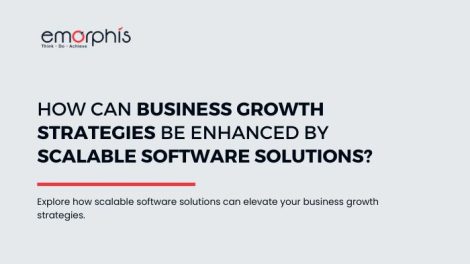Getting your startup funded is a dream come true for any startup founder right from seed funding to later stages – series funding. The right funding plays a critical role in the success of every startup. But have you ever realized that more than money, the source of money is even more crucial in your startup’s success.
Yes ! the choice of source of money (Investors) can be a stepping stone or roadblock for your startup.
Securing capital for your startups can come from several resources (for instance – personal savings, credit cards, traditional bank loans, crowdfunding, even your wealthy parents for that matter). Finding an investor who believes in you is utmost important for your vision. Entrepreneurs must ensure that they are choosing the right investors for their startup, your selection of investors’ can either destroy your dream or can be the foundation of your startup’s success.
When you’re on board with an investor, that alliances or individuals becomes a part of your cap table for a long period. It is not an exaggeration to say that choosing the right investor is like choosing your life partner, one can make or break your life, while the other can make or break your startup.
At the initial stage, the small amount of initial seed funding can have a huge impact on who you can attract in the future for further investment rounds. So, it becomes even more important to chose carefully the initial seed investor.
Deciding the quality which needs to be their in an investor at the dawn helps entrepreneurs streamline the filtering and screening process while empowering them to make better decisions.
Following are eight important pointers to help you choose the right investors for your startup:
The Right Investor for your Stage – Selecting the correct level of investor based on your stage or round is the foundation step. Everyone wants that big VC’s (Venture Capital) money. Yet before going into it, you probably need to be holding an angel investor or family and friends funding rounds.
Investor’s financial health – Ok so you got one investor who is / are ready to invest in your startup and they are also ready to invest the amount that you need. In this situation instead of directly saying yes to this fund; check your investor’s financial health. If the investor isn’t doing well financially, that person going to be under a lot of stress, and that pressure will slowly flow down to the entrepreneur. Even though it is not critical, it is clearly more profitable and efficient to have an investor who is financially sound for a foreseeable secured future, and can make further rounds of funding and is not in need of instant returns.
Diversity – One of the important things to be considered by entrepreneurs is to think about selecting a diverse range of investors, with even more diversified portfolios. Diversification is the benchmark of any solid investment portfolio and it has several benefits in terms of influence, reach and access.
For instance – Suppose you only have three investors in your social networking startup, each of whom has 35% of the portfolio on Facebook and Facebook suddenly goes down hard. It is highly dubious you’ll get more money from them. In fact, they’ll probably be surrounded by an enormous amount of stress on you to make up for it.
Ability to fund repeatedly – For the reputation of your company, it is very important to stick with your investor for a longer period of time because finding a new investor for each round could be costly and time consuming affair. It also diminishes your company reputation and can make your company less attractive to others in the future. So ideally you should choose an investor who can invest in your startup repeatedly.
Influence – Keep an eye, how much influence your investors have in your field and industry, with distribution, with other investors, and also with key influencers? This can far prevail fruitful for the amount of capital being invested.
For example – Top tier early stage VC investors like First Round or Andreessen Horowitz are specialized in investing in seed. If they support you in investing, they’re not only financially supporting you but they become increasingly useful resource for organizing, marketing and realizing ideas. That type of value is something to be taken care of when making your attempts to raise the capital.
The lead investor should lead the way – Lead investor plays a vital role than that of other investors, a lead investor tends to be much more involved in the business. Since the lead investor has the highest investment amount in your startup thus the lead investor also has the loudest say in your business that can lead your startup towards or away from the goals you have from your startup.
Also, make sure that your chosen investor makes it more attractive for your ideal investors in future rounds. There are many examples, having prominent individuals or alliances on your board can attract others to join the board with fruitful investments.
In addition, great investment giants on your board will strengthen the credibility of your venture. Remember always that initial stage of investing is all about trust that you’ve developed with your investor.
Synchronization of thoughts and personality – Your brand is your company’s most precious assets, ensure that investor fits into your brand and company culture. A good investor will fit and mix up with your company’s culture and can contribute to the brand and office related decisions in the desired fashion.
Also, your investors must have the same expectations from the business as you have. For example – An entrepreneur may want his app to be ad-free but he may be forced by the investor to run ads to secure early ROI.
Congenial Investor – Your investor must be congenial with all your stakeholders; you and your funding team, key talents, other investors and vendors. If you lose any one of them from your ecosystem, the money you’ve got probably won’t be able to stay with you in the business.
In many cases, founders end up dealing with the unpleasant investors who make them weep at each board meeting. In these instances, the investors are mostly top-tier VC investors. Make sure you’ve chosen folks for positive thinker and good people as investors.
The bottom line – Entrepreneurs need to choose humble investors who are familiar with your venture and the subsequent industry of operations. Investors are the most critical part of your success, either they make you or break you. These key factors are helpful in selecting potential investors. Keep this factor in mind while engaging in preparing questions, investors meetings and learn how to read people. It’s not just about capital, they might be able to share their experiences to assist you to succeed and bring your company to the next level.







